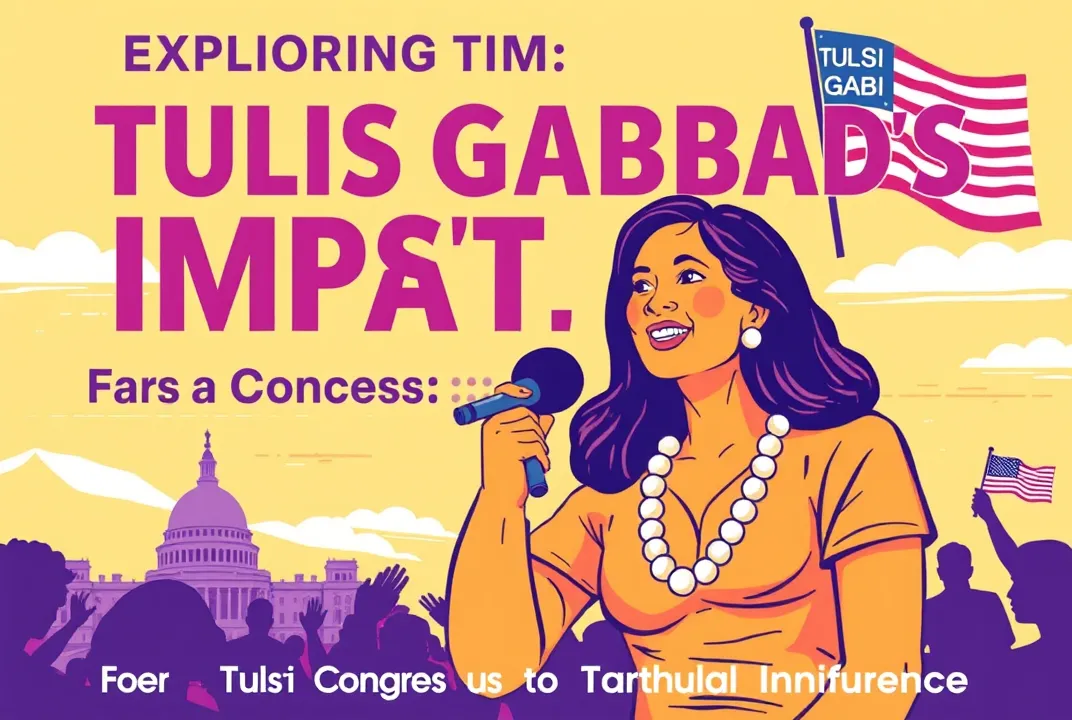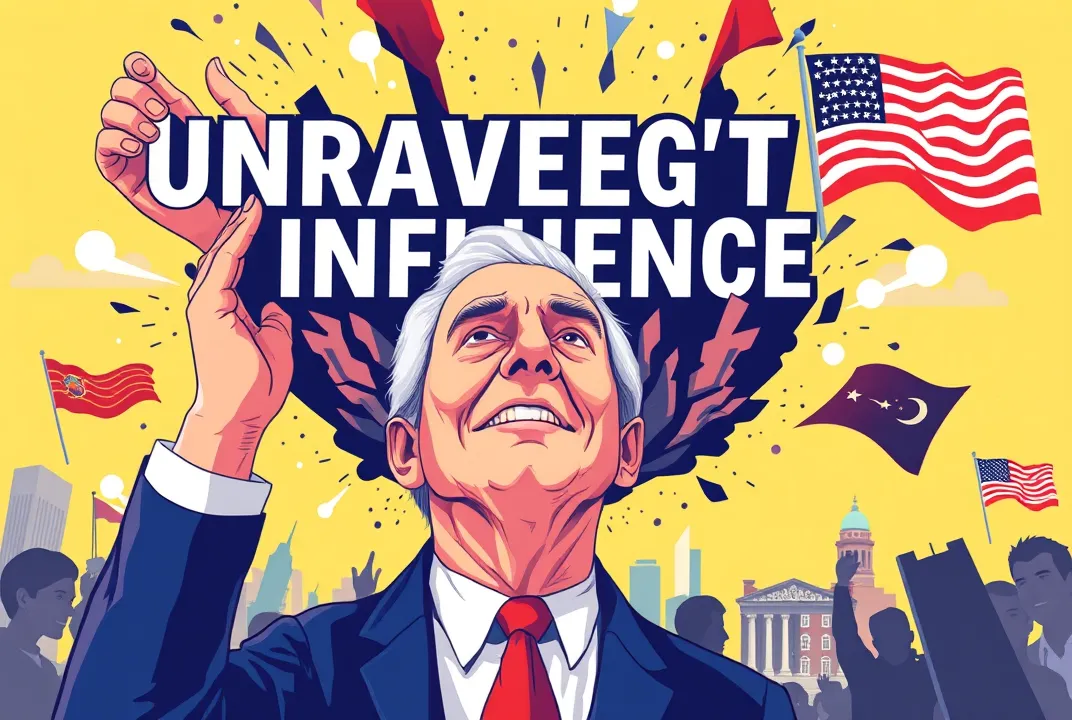Introduction: A Journey of Transformation
Tulsi Gabbard, a name that has reverberated through the political landscape of the United States, is a figure of multifaceted influence. From her beginnings in Congress to her evolution as a cultural icon and a voice for change, Gabbard's journey is not just about political maneuvering but also about her ability to connect with people on a deeply human level. As we explore her impact, we dive into the significant milestones that have shaped her career and how they resonate with the current socio-political climate.
The Rise of Tulsi Gabbard: From military service to Political Office
Early Life and military service
Born on April 12, 1981, in Leloaloa, American Samoa, Tulsi Gabbard grew up in a multicultural environment that laid the groundwork for her future. Her diverse heritage—Hindu, Catholic, and Samoan—has significantly influenced her worldview. Gabbard joined the Hawaii Army National Guard in 2003, serving two tours of duty in the Middle East. Her military experiences would later inform her perspective on foreign policy and national security, positioning her as a unique voice within the Democratic Party.
Elected to Congress
In 2013, Gabbard made history by becoming the youngest woman ever elected to Congress at the age of 31. Representing Hawaii’s 2nd congressional district, she quickly became known for her progressive stances on issues like climate change, healthcare, and civil liberties. Gabbard's candidacy represented a new wave of leadership, one that was unafraid to challenge the status quo and advocate for what she termed a more "principled foreign policy."
A Voice for Peace: foreign policy and Opposition to War
Challenging Conventional Narratives
One of Gabbard's most significant impacts has been her outspoken opposition to U.S. interventionist policies. Her notable meeting with Syrian President Bashar al-Assad in 2017 stirred controversy but underscored her commitment to dialogue over conflict. Gabbard's stance was rooted in her belief that the U.S. should not engage in regime change wars that have historically resulted in long-term instability.
The 2020 Presidential Campaign
Gabbard's 2020 presidential campaign was a defining moment in her political career. Her candidacy was marked by her emphasis on anti-war rhetoric, environmental sustainability, and healthcare reform. Despite facing challenges from more established candidates, she garnered a dedicated following. Her candid discussions about veterans' issues and mental health resonated with voters, particularly those who felt marginalized by traditional political discourse.
Transitioning to Cultural Influence
Embracing a Broader Platform
Following her departure from Congress in January 2021, Gabbard shifted her focus toward cultural and social issues, utilizing social media platforms to reach a wider audience. She has emerged as a vocal critic of both left-wing and right-wing extremisms, positioning herself as a centrist voice in polarized times. Her podcast, "Tulsi Gabbard Show," provides a platform for discussing various topics, from politics to wellness, allowing her to connect with a diverse audience that extends beyond her former political base.
Advocacy for Freedom of Speech
Gabbard has also become an advocate for freedom of speech, often addressing issues of censorship and the importance of diverse viewpoints. Her commentary on social media platforms and in public forums highlights the growing concern about cancel culture and the stifling of dissenting opinions. This advocacy has further solidified her role as a cultural influencer, drawing in those who are seeking a more balanced discourse in today’s hyper-partisan environment.
The Significance of Gabbard's Influence
Impact on political discourse
Tulsi Gabbard’s journey from Congress to cultural influence reflects a broader shift in political discourse. She embodies a growing demand among the electorate for leaders who prioritize authenticity and integrity over partisanship. Gabbard’s ability to bridge gaps between conflicting ideologies and her emphasis on civil discourse serve as a reminder of the importance of empathy in politics.
Engaging the Next Generation
Her influence also extends to the younger generation, many of whom are disillusioned with traditional political structures. Gabbard’s approach to issues like climate change and social justice resonates with young activists seeking progressive change. By leveraging her platform to engage and inspire youth, she is nurturing a new breed of informed citizens who are motivated to participate in democracy.
Conclusion: A Lasting Legacy
As Tulsi Gabbard continues to evolve, her impact on American political and cultural landscapes remains profound. Her journey is more than just a political story; it is a testament to the power of resilience, dialogue, and the unyielding pursuit of truth. Whether in Congress or as a cultural commentator, Gabbard’s commitment to her principles and her willingness to challenge conventional wisdom set her apart as a leader of our times.
In exploring Tulsi Gabbard's impact, we find a narrative that encourages introspection about our political affiliations and the values we stand for. As the world continues to change, figures like Gabbard remind us that the future of politics may not solely lie in traditional party lines but in the ability to connect, communicate, and inspire change across diverse communities.


 Unraveling the Influence: Bob Menendez's Role in Shaping Modern Politics
Unraveling the Influence: Bob Menendez's Role in Shaping Modern Politics
 Pete Hegseth: The Voice of Conservatism in Modern Media
Pete Hegseth: The Voice of Conservatism in Modern Media
 Top 10 Beatles Songs That Shaped Music History Forever
Top 10 Beatles Songs That Shaped Music History Forever
 Discovering the Legacy of Johnson: A Journey Through History
Discovering the Legacy of Johnson: A Journey Through History
 Kash Patel: Insights Into His Political Influence and Journey
Kash Patel: Insights Into His Political Influence and Journey